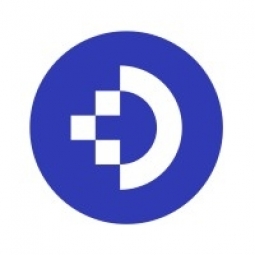Download PDF
Justice for Documents
Technology Category
- Application Infrastructure & Middleware - Data Exchange & Integration
- Functional Applications - Enterprise Resource Planning Systems (ERP)
Applicable Functions
- Business Operation
- Human Resources
Services
- Software Design & Engineering Services
- System Integration
The Challenge
The Disciplinary Board of the Supreme Court of Pennsylvania, an independent ethics organization, was struggling with managing and storing a large amount of information accurately due to the large number of attorneys in the Commonwealth. The Board's largest division, the Office of Disciplinary Counsel (ODC), investigates 4,500 – 5,000 complaints annually against attorneys, and when appropriate also prosecutes, resulting in either private or public discipline. The Office of the Secretary to the Board is charged with, among other things, housing the official record of any case resulting in a hearing or discipline. The Attorney Registration Office collects attorney registration fees and maintains a copy of each attorney’s annual registration form. The Accounting and Human Resource Office handle basic business functions. After evaluating its business practices, the Board decided it needed to revise some of its processes in order to gain efficiencies, better manage its documents and create approval processes for the Accounting Office and ODC that could be easily reviewed and audited.
About The Customer
The Disciplinary Board of the Supreme Court of Pennsylvania was established in 1972 to assist the Supreme Court of Pennsylvania in protecting the public and maintaining the integrity of the legal profession by regulating attorney conduct and disciplining misconduct. The Board is an independent ethics organization funded solely by annual fees assessed on each attorney practicing in Pennsylvania. The Board employs a staff of 70 located in 6 offices throughout the Commonwealth. Pennsylvania has a roll of approximately 100,000 attorneys with roughly 65,000 of them practicing. With such a large number of attorneys in the Commonwealth, the Disciplinary Board must manage and store a great deal of information with accuracy. Their largest division is the Office of Disciplinary Counsel (ODC) which investigates 4,500 – 5,000 complaints annually against attorneys, and when appropriate also prosecutes, resulting in either private or public discipline. The Office of the Secretary to the Board is charged with, among other things, housing the official record of any case resulting in a hearing or discipline. The Attorney Registration Office collects attorney registration fees and maintains a copy of each attorney’s annual registration form. The Accounting and Human Resource Office handle basic business functions.
The Solution
The Board decided to expand its use of DocuWare to include live case files, as well as integrate the solution with other key software they use. They wanted a solution that could provide them with version control and could facilitate employee collaboration. Their Authorized DocuWare Partner, Toshiba Business Solutions, visited each office to understand their paper processes and show the Disciplinary Board how to improve and optimize their existing processes using DocuWare. The ODC’s process starts when a complaint is filed. Hard copy documents are scanned and indexed using a drop down list for the document type and one-click technology, which allows users to point and click on the text they want to use as an index value, avoiding typos and reducing indexing time. Electronic documents are directly imported into DocuWare and indexed in a similar manner. Within the ODC, electronic approval workflows are in place to allow a colleague to either concur or dissent with any specific decision relating to a case under investigation. If the colleague concurs with the recommendation, the document is automatically routed to a manager for final approval. Tracking these approvals is important to maintaining the organization’s directives.
Operational Impact
Quantitative Benefit





